Das Olympische Bildungsmagazin
Jérôme Champagne: “Which FIFA for the twenty-first century?” (II)
- Jerome Champagne
- 22. September 2012
- 23:57
- 2 Kommentare
Mrs. President and Mr. Presidents of FIFA member associations,
Officials and members of these associations,
Dear friends in football,
At the very moment when the 2012 football season gets closer to its end on some continents (South America, Africa) and when the 2012-2013 season has just begun on others (Europe), the debate of the future of FIFA and the future of football is of utmost importance.
Following the contribution (“Which FIFA for the twenty-first century?”) that I sent to you on last 15th of January, I have been invited to participate to several debates on these issues in Denmark on 19 and 20th of September, with such personalities as Mr. Theo Zwanziger, FIFA Executive Committee member and former German FA Chairman, Lord David Triesman, former Chairman of The FA, and Mr. Mark Pieth, Chairman of FIFA’s Independent Governance Committee.
For a little more than a year now, a reform process for FIFA has been taking place upon the initiative of and led by its President, Mr. Joseph S. Blatter. I particularly rejoice of its initial results which are quite substantial in spite of some observers’ comments, and which are all among the measures I had proposed in my January 15th document.
(1) FIFA started adapting to the twenty-first century:
- By co-opting a woman, the first in history, within its Executive Committee, the Burundi FA President, Mrs. Lydia Nsekera, whose position will be submitted for election in 2013,
- By authorizing – at last and after so many other sports ! – the first introduction of new technologies to help referees in their task and to fight injustices which have no place at all in sport,
- By considering cultural idiosyncrasies and authorizing the headscarf enabling girls and women to play football which they would not be able to practice otherwise.
(2) FIFA began returning to its members, the 209 football associations, the competences which are theirs and that they had lost:
- By confirming that in the future, the decision to host FIFA World Cup will be taken by the associations gathered in the congress as it was the case before 1966,
- By deciding that the chairmen, deputy chairmen and the members of four of its committees (Ethics, Audit and Compliance, Discipline, Appeal) not the least important ones, will be elected by the associations in the congress.
(3) FIFA endowed itself with a new Ethics Committee whose investigation power upon its own decision, without any limitation of topics and time, transforms FIFA into the international organization, sport and political, with the widest reaching ethical instrument.
The processes launched and announced by the Chairman of its investigation branch, Mr. Michael Garcia, represent a decisive step towards the rehabilitation of FIFA’s reputation in light of the allegations, substantiated or not, the various “grey areas” – the Committee will clarify – which have tarnished its image.
This reform process will and must continue with the perspective of the 2013 FIFA Congress but it can only recognized that some issues have not been broached or at least superficially only within the larger frame of this debate.
(A) FIFA’s democratization
In every democracy, the electoral process has the purpose to appoint an elected person on a platform with the responsibility to implement it and with the obligation to be regularly held accountable to the voters (in FIFA every year in front of the congress) and at the end of his/her mandate if he/she wants to be re-elected. In democratic systems, the elected person has the power to choose the government who will help the implementation of the platform he/she has been elected for.
This is not the case in FIFA! The Executive Committee members have been elected through different entities and various political cycles. Rather than a football government, the Executive Committee became a kind of “confederations’ council” where majorities are molded not to implement the program the President has been elected for, but by combining blocks of votes and within which continental officials’ legitimacy oppose the president’s world legitimacy, trying to control the latter and/or to limit it.
In fact, the associations elect a president without giving him/her the means of the policy he/she has been elected for. Regarding the concept of term limits, to limit the number of mandates for the president to two terms while it would be a three-term limit for the Executive Committee members (as indicated in the documents prepared by Mr. Zwangziger’ task force on the FIFA statutes) would only weaken even further the position of the FIFA president and reduce even further the democratic value of his/her election. While it is this universal legitimacy of its president where FIFA’s strength is derived from!
A debate must be thus opened to establish a truly democratic system with a president elected by the congress, with an executive committee within which the president will have the majority of the votes (for ex. election by list with associations’ presidents supporting the election of the president). Why not as well transforming the current Associations’ Committee into a body elected by the congress and adding to its current tasks the responsibility to represent the congress between its sessions, in a kind of congress permanent committee?
(B) World football balance of power
In spite of historical changes, the independence of African countries in the 1960’s, increased presence of the other continents, etc., the balance of strengths within the Executive Committee is a legacy of the world situation as it was after World War II:
- British vice-presidency
- A continent (Africa) with roughly the same number of associations but half the number of seats in the Executive Committee of another continent (Europe)
- Under-representation of a continent (Asia) with half of the world population
- Under-representation of some regions comparing to others on the same continent.
This legacy – maybe founded at one time – is not justified any longer. Worse, it contributes to the fragmentation of world football, protects situations and perpetuates imbalances and hegemonies.
This situation of FIFA dating back for the mid-twentieth century must be adjusted to better represent world football within the debate which is basically not dissimilar to the debates about the reforms of the UN Security Council or international organizations such as the IMF and the World Bank.
The world has changed; football and the FIFA must change and adjust to this new reality.
(C) Inequalities in football
Like in the rest of our societies, inequalities in football have increased between continents, between countries, between the various tiers of our national competitions and between clubs participating in the same competitions.
Moreover, recent news will not take us in the right direction:
- +70% for the TV contracts of the English Premier League, already and by far the wealthiest one of the world,
- +22% for the already really well gifted UEFA Champions League and 12% only for the UEFA Europa League,
- Growing gap between a minority of very wealthy clubs and a majority facing huge difficulties,
- Same assessment for the players with the huge majority of them facing lower salaries, unpaid salaries, unemployment and desperate human situations making them more vulnerable to corruption and match-fixing!
In the current debate on the reform of FIFA, this reform will not make sense if it does not launch a debate of the kind of football we collectively want for the twenty-first century: an elitist football concentrated of few countries, few competitions and few clubs or a football truly universal, in solidarity and pulling everyone up towards development and success.
World football benefits greatly from the success of these very few top leagues and this success should be acknowledged, acclaimed, supported and fostered. But no one should forget that football is nurtured from the bottom up and blossoms in all corners of our planet to give all of us our right share.
With this vision, the twenty-first century FIFA must not only continue its football development mission but must amplify it even further because only a proactive and resolved FIFA can implement a global vision correcting the imbalances of our world and their consequences on our sport!
(D) The respective competences of FIFA members and of the other football stakeholders
The FIFA is a federation of 209 national associations and must remain so. This is exactly what FIFA’s strength since 1904 was built on and represented the roots of the universality of football. One does not change a winning formula.
With this in mind, the first elements of the reform head to the right direction replacing the national associations at the center of the decision-making process. But it is necessary to go further reinforcing their authority and their position with a majority of seats in the Executive Committee reserved to them, with congresses with more resonance and more focused on debates and proposals emanating from the associations, etc.
Of course, other football stakeholders should be represented to the Executive Committee as well:
- The Confederations even though they are not members of FIFA, play a big role for football through their competitions and must naturally by represented there as confederations,
- Players (FIFPro), leagues and clubs via a truly universal, democratic and representative structure, must have the possibility to have their voices and opinions heard, their interests defended (not only the biggest’s and not only from only one continent) and their ideas and proposals contributing to the governance and the betterment of world football.
(E) The very nature of FIFA
In this wide debate on FIFA reform, the very nature of FIFA is questioned: is it a non-profit association based under Swiss law or should it become a purely commercial company and adopt the relevant structures (independent members on the board, etc.)?
In fact, FIFA was created in 1904 to become the government of world football and has been so during many years with limited resources.
With the huge increase of football finances in the roughly past fifteen years, the nature of FIFA got confused between its regulatory duties and its side as an economic entity. This blurring of the lines – some would even call that a complete mix-up – is at the core of the controversies, the allegations substantiated or not, and today, unfortunately, piling up evidence for cases of corruption, conflict of interests and violations of ethical norms.
In my opinion, it is necessary to find the appropriate mechanisms which would strengthen the football governing nature of FIFA and separate it from its commercial activities to be protected from the kind of suspicions and allegations which blossomed in the past years.
Through its regulations, FIFA must boost the good of the game. Through its development programs, it should ensure the universality of football and of its values. Through its competitions, it should to each of us, players, clubs, national teams, the opportunity to play and to win, and to all, football lovers and football fans, the passion of the ball.
In a few words, these were the major issues I developed in Denmark and that I wanted to share with you.
Best regards
Jérôme Champagne
Frau Präsidentin, Herren Präsidenten der Mitgliedsverbände der FIFA,
Offizielle und Mitglieder dieser Verbände,
Liebe Freunde des Fussballs,
Gegenwärtig neigt sich in einigen Kontinenten (Südamerika, Afrika) die Fussballsaison 2012 ihrem Ende zu während in andern Kontinenten (Europa) die Spielzeit 2012/13 eben erst begonnen hat. Es ist der ideale Zeitpunkt, um sich Gedanken über die Zukunft der FIFA und des Fussballs zu machen.
Nach dem Text unter dem Titel „Welche FIFA für das 21. Jahrhundert?“, den ich Ihnen am 15. Januar 2012 zukommen liess, wurde ich eingeladen, am vergangenen 19. und 20. September in Dänemark an verschiedenen Gesprächen zu diesen Themen teilzunehmen, zusammen mit gewichtigen Persönlichkeiten wie Theo Zwanziger, Mitglied des Exekutivkomitees der FIFA und früherer Präsident des DFB, Lord David Triesman, früherer Präsident der Englischen Football Association, und Prof. Mark Pieth, Präsident der Unabhängigen Kommission für Governance der FIFA.
Seit etwas mehr als einem Jahr ist in der FIFA auf Initiative und unter der Leitung von FIFA-Präsident Joseph S. Blatter ein Reformprozess angelaufen. Ich freue mich über die ersten substanziellen Resultate, die alle Teil der Massnahmen sind, die ich in meinem Schreiben vom 15. Januar angeregt hatte.
(1) Die FIFA hat begonnen, sich an das 21. Jahrhundert anzupassen:
- Zum ersten Mal in der Geschichte wurde eine Frau, Lydia Nsekera, Präsidentin des Burundischen Fussballverbandes, in das Exekutivkomitee der FIFA berufen, vorerst als kooptiertes Mitglied. Sie wird 2013 zur Wahl vorgeschlagen.
- Die FIFA gestattet nun den Gebrauch neuer technischer Hilfsmittel, was in vielen Sportarten schon seit langem Tatsache war. Einerseits sollen dadurch die Schiedsrichter in ihren Aufgaben unterstützt werden und anderseits sollen Ungerechtigkeiten, die im Sport nichts verloren haben, bekämpft werden.
- Auch den kulturellen Besonderheiten soll Rechnung getragen werden, indem den Frauen, die sonst auf das Fussballspielen verzichten müssten, das Tragen von Kopftüchern im Spiel erlaubt wird.
(2) Die FIFA hat begonnen, ihren Mitgliedern, den 209 Nationalverbänden, Rechte zurück zu geben, die sie im Laufe der Zeit verloren hatten.
- Die Fifa bestätigt, dass die Endrunden des FIFA-Weltpokals in Zukunft durch den Kongress, d.h. durch die versammelten Mitgliedsverbände, vergeben werden, wie dies bis 1966 der Fall war.
- Die FIFA hat beschlossen, dass die Präsidenten, Vizepräsidenten und Mitglieder von vier wichtigen Kommissionen (Ethik-, Audit-, Disziplinar- und Berufungskommission) durch die versammelten Mitgliedsverbände am Kongress gewählt werden.
(3) Die FIFA hat eine neue Ethikkommission geschaffen, die ihre uneingeschränkten Untersuchungsbefugnisse in eigener Kompetenz bestimmen kann. Damit ist die FIFA jene internationale Organisation – sei es auf sportlicher oder politischer Ebene -, die über das mächtigste Gremium in ethischen Belangen verfügt.
Die eingeleiteten Schritte und die vom Präsidenten der Untersuchungskammer, Michael Garcia, angekündigte Vorgehensweise sind wichtige Massnahmen zur Wiederherstellung des guten Rufs der FIFA, dem – begründete oder unbegründete – Behauptungen grossen Schaden zugefügt haben.
Dieser Prozess wird und muss im Hinblick auf den FIFA-Kongress von 2013 weiter geführt werden, denn gewisse Themen wurden bisher nicht oder nur oberflächlich behandelt.
(A) Die Demokratisierung der FIFA
In einer Demokratie wird eine Person aufgrund ihres Programms gewählt, an das sie sich zu halten hat und über das der Gewählte den Wählern regelmässig Rechenschaft ablegen muss (in der FIFA jedes Jahr im Kongress). In einem demokratischen System hat die gewählte Person das Recht, ihre Regierungsmitglieder selber auszuwählen.
In der FIFA ist dies nicht der Fall. Die Mitglieder des Exekutivkomitees werden von andern Instanzen und in andern politischen Zyklen gewählt. Anstatt eine Regierung des Fussballs zu sein, ist das Exekutivkomitee zu einer Art „Rat der Konföderationen“ geworden, wo sich Mehrheiten bilden, die nicht die Durchsetzung des Programms des gewählten Präsidenten zum Ziel haben, sondern wo Blöcke entstehen, die die weltweite Legitimation des Präsidenten zu kontrollieren und/oder einzuschränken versuchen.
Tatsache ist, dass die Nationalverbände einen Präsidenten wählen, ohne ihm die Mittel für die Durchsetzung der Politik, für die er gewählt wurde, zu geben. Die Idee einer Amtszeitbeschränkung, d.h. die Anzahl Amtszeiten des Präsidenten stärker einzuschränken als diejenige der Mitglieder des Exekutivkomitees (2 gegen 3 Amtszeiten, wie von der Task Force Statutenrevision unter dem Vorsitz von Herrn Zwanziger angeregt), würde die Stellung des Präsidenten und den demokratischen Wert seiner Wahl noch mehr schwächen, während genau diese universelle Legitimation ihres Präsidenten die Stärke der FIFA ausmacht!
Man muss sich deshalb Gedanken darüber machen, wie ein wahrhaft demokratisches System mit einem durch den Kongress gewählten Präsidenten und einem Exekutivkomitee, das ihn mehrheitlich unterstützt, etabliert werden kann (z.B. Listenwahl von Verbandspräsidenten zusammen mit der Wahl des FIFA-Präsidenten). Man könnte beispielsweise die Kommission der Verbände zu einem durch den Kongress gewählten Organ machen, das zusätzlich zu den bisherigen Kompetenzen den Kongress zwischen den Sessionen repräsentieren würde – ein Art Ständige Kommission des Kongresses.
(B) Das Kräfteverhältnis im Weltfussball
Trotz der historischen Entwicklungen, wie die Unabhängigkeit afrikanischer Staaten in den Sechzigerjahren, die wachsende Bedeutung der andern Kontinente usw. entsprechen die Kräfteverhältnisse im FIFA-Exekutivkomitee noch immer der politischen Situation am Ende des 2. Weltkriegs:
- Britische Vizepräsidentschaft,
- Ein Kontinent (Afrika) mit der gleichen Anzahl Nationalverbände wie Europa, aber mit nur halb so vielen Sitzen im Exekutivkomitee,
- Untervertretung Asiens, wo die Hälfte der Weltbevölkerung lebt,
- Übervertretung gewisser Regionen gegenüber andern innerhalb eines Kontinents.
Diese Kräfteverhältnisse, die früher einmal Sinn machten. sind heute überholt. Schlimmer noch, sie tragen zur Zerteilung des Weltfussballs bei, schützen bisherige Zustände und zementieren Ungleichgewicht und Hegemonien.
Diese Situation, die aus der Mitte des 20. Jahrhunderts stammt, muss korrigiert werden, was im Rahmen einer Debatte geschehen soll, die viel Ähnlichkeit mit beispielsweise den Reformen des UNO-Sicherheitsrats und anderer weltweiter Organisationen (so wie Internationaler Währungsfonds oder Weltbank) hat.
Die Welt hat sich verändert, der Fussball und die FIFA müssen sich ebenfalls ändern und sich anpassen.
(C) Die Ungleichheiten im Fussball
Wie in der Gesellschaft im allgemeinen, sind die Ungleichheiten im Fussball grösser geworden, zwischen den Kontinenten, den Ländern, den Ligen der einzelnen Länder und den Klubs innerhalb des gleichen Wettbewerbs.
Die aktuellen Nachrichten weisen nicht auf eine Verbesserung der Situation hin:
- +70% bei den Fernsehgeldern gemäss dem neuen TV-Vertrag der englischen Liga, die schon heute die reichste der Welt ist,
- +22% für die heute schon gut dotierte Champions League und +12% für die Europa League,
- Die Schere zwischen den sehr reichen und den andern, meist mit finanziellen Problemen kämpfenden Klubs öffnet sich immer mehr,
- Gleiches gilt für die Spieler, von welchen die meisten von Lohnreduktionen, ausstehenden Löhnen, Arbeitslosigkeit und hoffnungslosen persönlichen Schicksalen betroffen sind und dadurch anfällig für Korruption und Spielmanipulation werden.
Eine Reform der FIFA macht nur dann Sinn, wenn auch über den Fussball gesprochen wird, den sie sich für das 21. Jahrhundert wünscht: wollen wir einen elitären Fussball, der sich auf wenige Nationalverbände, Ligen und wenige Vereine konzentriert oder wollen wir einen universellen, solidarischen Fussball, der weltweit für steigende Qualität sorgt?
Die enorme Popularität, die der Erfolg einiger weniger Ligen dem Fussball bringt, darf nicht vergessen lassen, dass nur eine gesunde Basis den Erfolg an der Spitze bringen kann und jedem ermöglicht, seinen Platz in dieser Pyramide zu finden.
Mit dieser Vision muss die FIFA des 21. Jahrhunderts nicht nur ihre Entwicklungsarbeit fortsetzen, sondern sie noch intensivieren, denn nur eine aktive und tatkräftige FIFA kann die Vision umsetzen und die Ungleichheiten in dieser Welt und ihre Folgen für unseren Sport korrigieren.
(D) Die Kompetenzen der FIFA-Mitglieder und anderer Akteure im Fussball
Die FIFA ist eine Föderation von 209 Nationalverbänden und muss dies bleiben. Denn darin liegt ihre Stärke seit 1904 und bildet die Grundlage für die weltweite Förderung des Fussballs. Halten wir uns an den Slogan „Never change a winning team“.
In diesem Sinn gehen die ersten Reformschritte in die richtige Richtung, indem die Nationalverbände wieder ins Zentrum der Entscheidungsfindung gerückt werden. Um den Nationalverbänden mehr Gewicht zu geben, müssen aber weitere Schritte folgen, wie beispielsweise eine Mehrheit an Sitzen im Exekutivkomitee und eine Stärkung des Kongresses, bei dem den Anträgen der Nationalverbände mehr Raum gegeben wird.
Selbstverständlich müssen auch andere Organe im Exekutivkomitee vertreten sein:
- Die Konföderationen, die, obwohl nicht FIFA-Mitglieder, vor allem aufgrund ihrer eigenen Wettbewerbe eine wichtige Rolle innehaben, müssen im Exekutivkomitee vertreten sein.
- Die Spieler (durch die FIFPro), die Ligen und die Klubs – nicht nur die grossen Klubs eines einzigen Kontinents – müssen zu Wort kommen und ihre Interessen vertreten können, um so den Fussball weltweit zu fördern und zu entwickeln.
(E) Die FIFA und ihr Auftrag
Die FIFA muss im Rahmen des Reformprozesses auch ihre eigene Rechtsform hinterfragen: ist sie ein Verein nach schweizerischem Recht oder soll sie ein kommerzielles Unternehmen mit entsprechenden Strukturen werden?
Die FIFA wurde 1904 als Führungsorgan des Weltfussballs gegründet und hat diese Rolle während langer Zeit trotz beschränkter finanzieller Mittel wahrgenommen.
Erst seit rund fünfzehn Jahren hat sich das Wesen der FIFA durch die enorme Zunahme der Einnahmen im Fussball verändert und es besteht ein Konflikt zwischen der traditionellen Rolle der FIFA und ihrer Bedeutung als Wirtschaftsfaktor. Dieser Zustand führt zu Kontroversen, zu begründeten oder unbegründeten Beschuldigungen und leider häufen sich die Beweise für Korruption, Interessenskonflikten und Verletzung von ethischen Grundsätzen.
Meiner Ansicht nach müssen Mechanismen gefunden werden, um die Führungsfunktion der FIFA im Fussball zu verstärken, indem man den sportlichen Teil von den wirtschaftlichen Aktivitäten trennt, damit diese nicht weiter zu Verdächtigungen wie in den letzten Jahren Anlass geben.
Die FIFA muss durch ihre Reglemente das Wohl des Spiels fördern, durch ihre Entwicklungsprogramme die Universalität des Fussballsports und seiner Werte sichern. Die FIFA-Wettbewerbe sollen jedem – Spielern, Klubs, Nationalteams – die Teilnahme und das Siegen ermöglichen und bei allen, die den Fussball lieben, die Leidenschaft für das runde Leder erhalten.
Soweit ein paar Gedanken zu brennenden Themen, die ich vor ein paar Tagen in Dänemark präsentiert habe und die ich weiterhin verteidigen werde.
Ich danke Ihnen für Ihre Aufmerksamkeit und grüsse Sie herzlich.
Jérôme Champagne
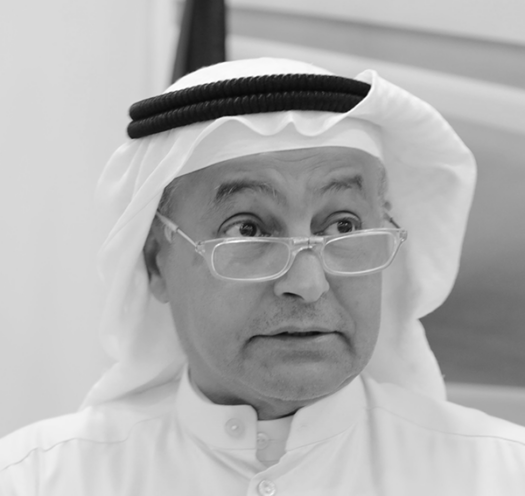

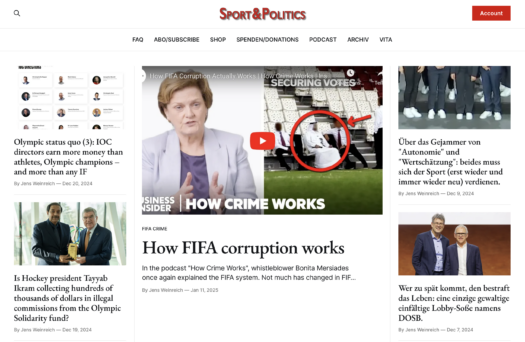
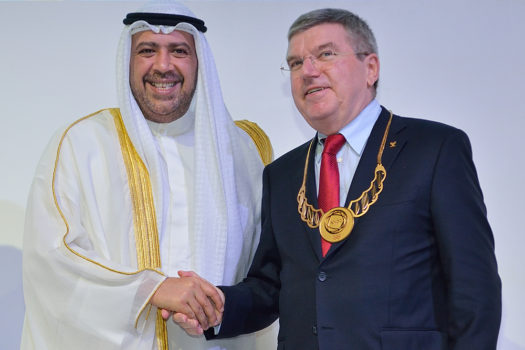
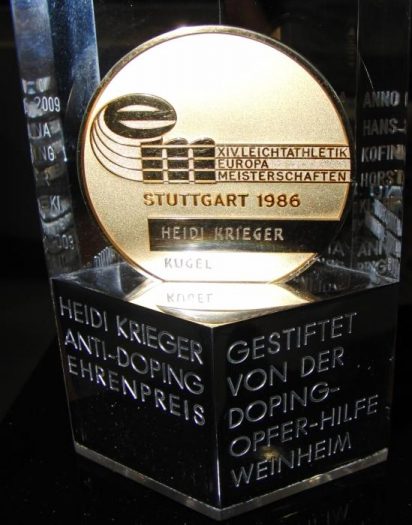
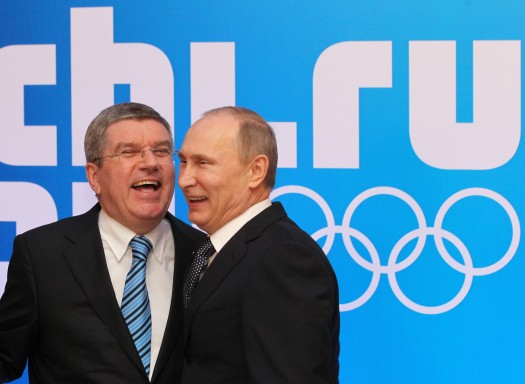
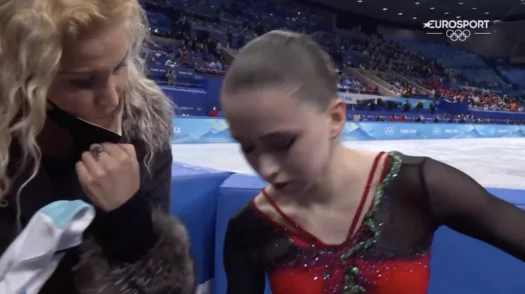
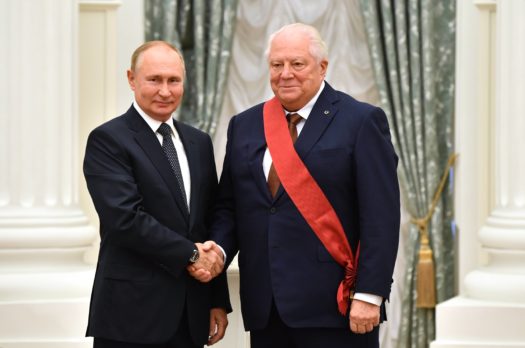
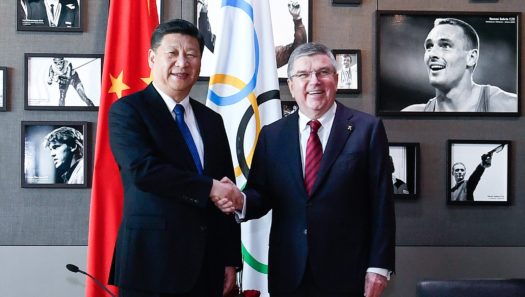
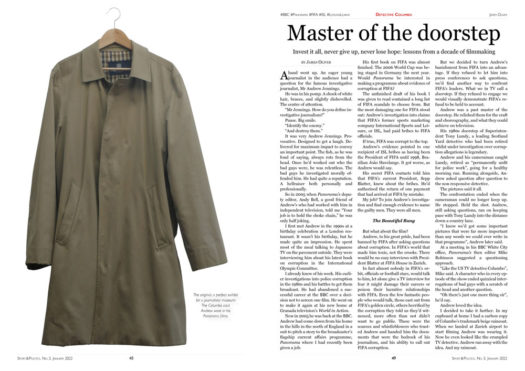
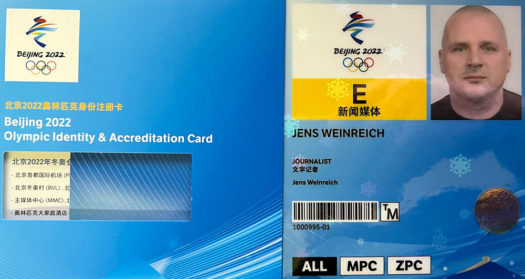
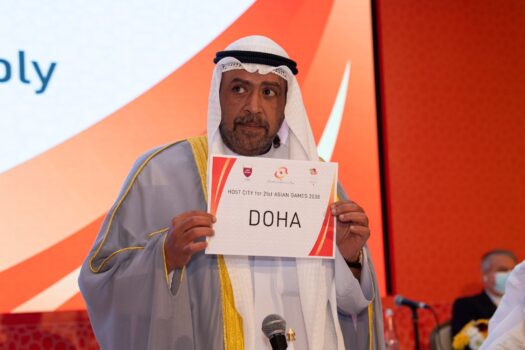
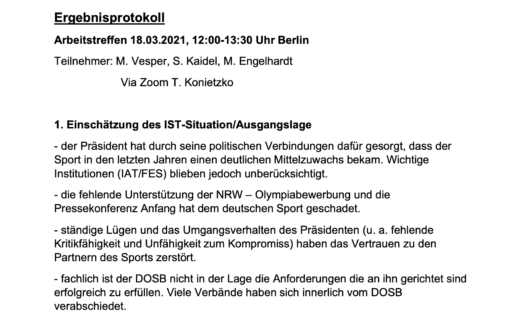
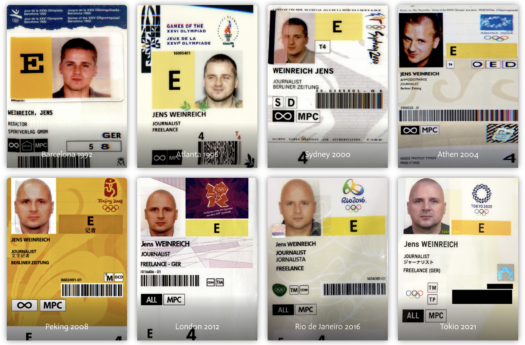
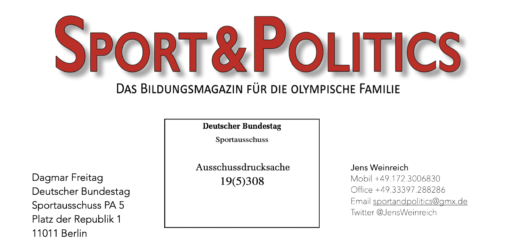
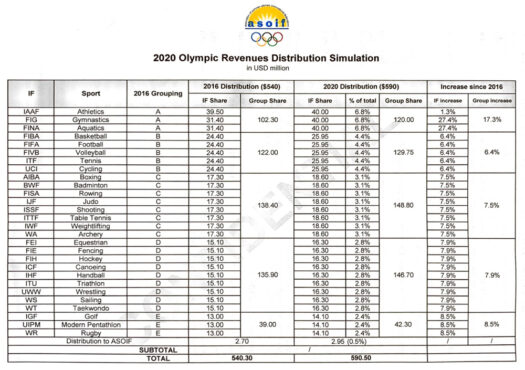
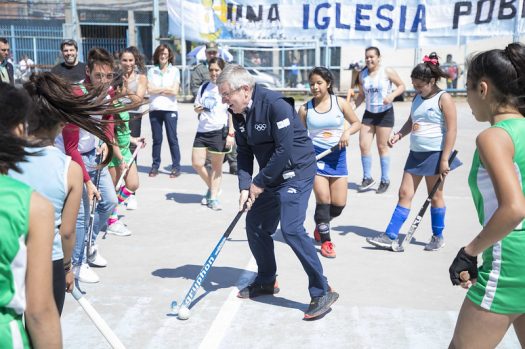
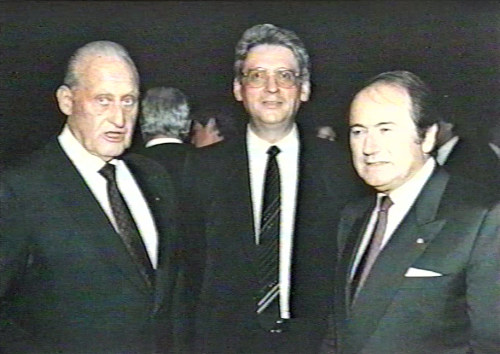
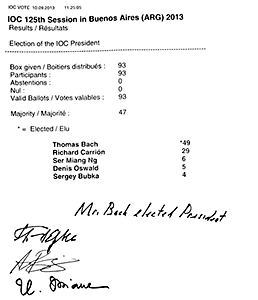
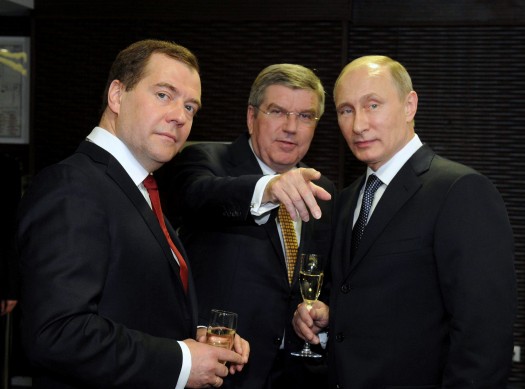
Pingback: Jérôme Champagne will FIFA-Präsident und Nachfolger seines langjährigen Chefs Joseph Blatter werden • sport and politics
Pingback: Jérôme Champagne beendet seine FIFA-Kampagne mit Attacken gegen Platini und die UEFA • sport and politics